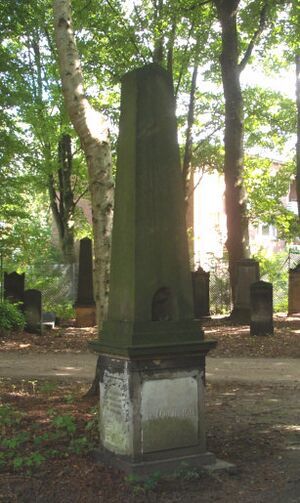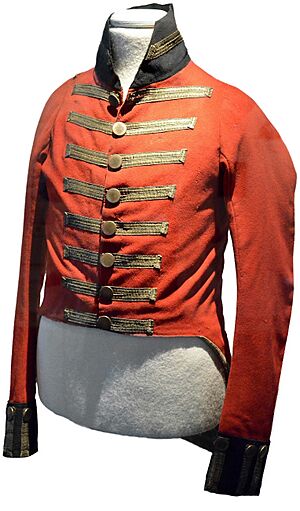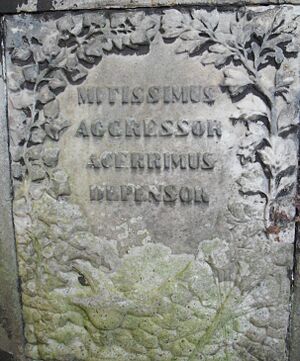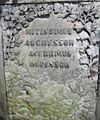Georg Hartog Gerson facts for kids
Georg Hartog Gerson (born August 25, 1788 – died December 3, 1844) was an important medical doctor and surgeon. He served in the King's German Legion during the Napoleonic Wars, a time of big conflicts in Europe.
Georg Gerson was born in Hamburg, Germany. His family had many doctors, going back to the 1600s. His grandfather was in charge of a Jewish hospital. His father and older brothers were also doctors. Georg studied at home, then went to a good school called a Gymnasium. He loved learning about old languages and science, especially plants. He studied medicine at universities in Berlin and Göttingen. He earned his medical degree on April 7, 1810. After more training in Hamburg, he joined the King's German Legion as a "hospital mate," which was like a medical assistant.
A Doctor in the Army
Georg Gerson quickly became an "Assistant Surgeon" on September 6, 1811. He joined the 5th Line Battalion of the King's German Legion. He worked as a doctor in many battles. These included fights in the Peninsular War in Spain and Portugal, in Southern France, and in the Lowlands (like Belgium and the Netherlands). He was also present at the famous Battle of Waterloo.
Dr. Gerson was very brave during battles. He stayed close to the fighting, helping wounded soldiers. He treated not only his own battalion's men but also soldiers from other allied groups. People saw how hard he worked and how skilled he was. He saved many lives, even though it was very dangerous for him. His bravery was admired by everyone who saw him. His commanding officer, Colonel von Ompteda, praised him publicly just before he died in a charge.
After the Battle of Waterloo, Dr. Gerson was put in charge of a hospital in Brussels. It was called the Hôpital de la Gendàmerie.
Life After the War
The King's German Legion was disbanded in 1816. Dr. Gerson then went back to Hamburg. At first, he mostly wrote books. But his surgery practice grew very fast. He became well-known as a skilled doctor and surgeon.
In 1833, he started teaching anatomy at a medical school. He also worked as a chief surgeon at a big hospital called the Allgemeine Krankenhaus. Sadly, in 1839, he became very sick with a long-term illness. He passed away suddenly on December 3, 1844, in Hamburg.
His Legacy
Georg Gerson was buried in the Jewish cemetery called the Grindelfriedhof. Later, during the time of the Third Reich, this cemetery was closed. All the graves and gravestones were moved. Dr. Gerson's memorial can now be seen at the Jewish Cemetery Ohlsdorf.
On his memorial, there is an inscription that says: "Mitissimus Aggressor – Acerrimus Defensor." This means "a mild aggressor – a sharp defender." This phrase likely describes his gentle nature as a person but his strong skills as a surgeon.
Dr. Gerson's uniform jacket is kept at the Hamburg Museum. It is believed that he wore this jacket at the Battle of Waterloo. It is thought to be the only jacket of a British or allied surgeon from the Napoleonic Wars that still exists today.
Honors
- Waterloo Medal (from Britain)
Images for kids
 | Delilah Pierce |
 | Gordon Parks |
 | Augusta Savage |
 | Charles Ethan Porter |







